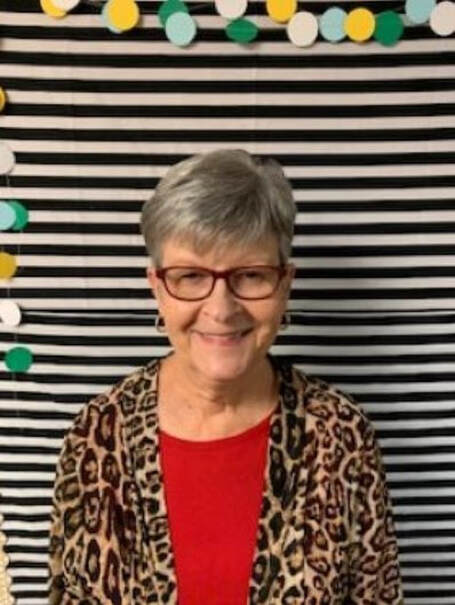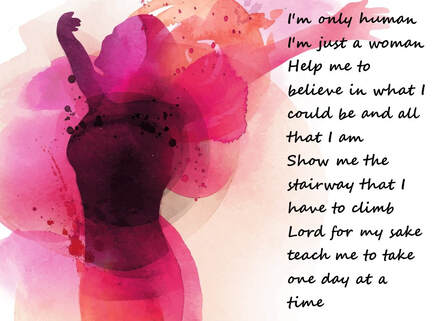Mrs. Brown knew from the time she was little an educational career awaited her. "I’ve always loved school and knew I was going to be a teacher. I have fond memories of a classroom set up in our garage where I was the teacher of my sister and whomever else I could recruit." Throughout her adolescent years, Carolyn remained captivated by her scholastic aspirations. She developed a love of reading and even to this day loses herself in a good book. Mrs. Brown states, “It’s my escape from stress, it’s a relaxing activity. When my children were at home my husband would always tell the girls, “Be sure your mom is looking at you when you ask her a question!” Because if I was reading, I was many miles or continents away.”
After graduating Okmulgee High School, her dreams of becoming an educator were fulfilled at East Central State University by obtaining a BS in Education. She went on to receive a MS in Reading at Northeastern State University. Influenced strongly by her previous instructors, Carolyn acquired a love of History. She states, “I loved history in high school. I had the best history teachers at Okmulgee High School. Mr. Sulivant, Mr. Cruce, Mr. Jamison, Mr. Henke, and Mr. Carr to name a few.” Her passion of History became her education major in college. However, Mrs. Brown goes on to say, “Along the way I switched to Elementary because the head of the History Department at East Central State University said Oklahoma was flooded with coaches that taught History. I really haven’t regretted changing majors.”
Mrs. Brown understands the need to match her teaching styles to the learning types exhibited by her students. Carolyn, herself, tends to be visual learner. She explains, “If I can see it, I usually remember things much better.” She believes that engaging all the senses aids the student. She states, “Younger children need the kinesthetic senses to learn; as well as, visual and auditory. The more senses involved the better the learning.” She also believes positive reinforcement helps reprimand a child’s behavior more efficiently. However, there are times when a student’s negativity may receive reproached managing. Mrs. Brown affirms. “If a child is very strong willed, I have to demonstrate a tangible discipline. They may have to miss out on part of a fun activity or recess to make a point. Usually it doesn’t take long for them to cooperate in a way that is beneficial for them and the class. I love conference time for that very reason... if parents or guardians are informed, they make wonderful partners during the school year.
After graduating Okmulgee High School, her dreams of becoming an educator were fulfilled at East Central State University by obtaining a BS in Education. She went on to receive a MS in Reading at Northeastern State University. Influenced strongly by her previous instructors, Carolyn acquired a love of History. She states, “I loved history in high school. I had the best history teachers at Okmulgee High School. Mr. Sulivant, Mr. Cruce, Mr. Jamison, Mr. Henke, and Mr. Carr to name a few.” Her passion of History became her education major in college. However, Mrs. Brown goes on to say, “Along the way I switched to Elementary because the head of the History Department at East Central State University said Oklahoma was flooded with coaches that taught History. I really haven’t regretted changing majors.”
Mrs. Brown understands the need to match her teaching styles to the learning types exhibited by her students. Carolyn, herself, tends to be visual learner. She explains, “If I can see it, I usually remember things much better.” She believes that engaging all the senses aids the student. She states, “Younger children need the kinesthetic senses to learn; as well as, visual and auditory. The more senses involved the better the learning.” She also believes positive reinforcement helps reprimand a child’s behavior more efficiently. However, there are times when a student’s negativity may receive reproached managing. Mrs. Brown affirms. “If a child is very strong willed, I have to demonstrate a tangible discipline. They may have to miss out on part of a fun activity or recess to make a point. Usually it doesn’t take long for them to cooperate in a way that is beneficial for them and the class. I love conference time for that very reason... if parents or guardians are informed, they make wonderful partners during the school year.


